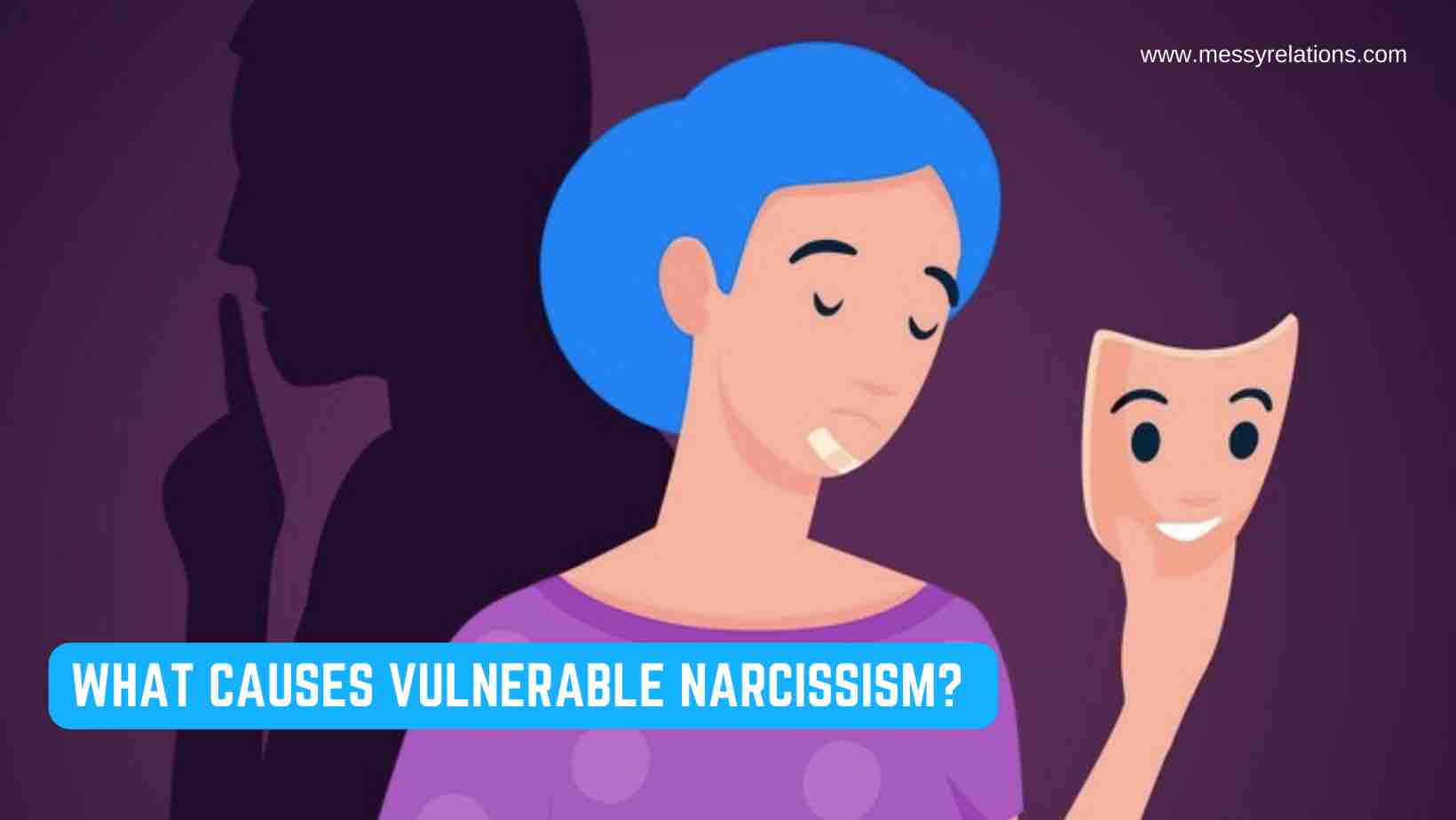Perfectionism and anxiety are two common psychological factors that can significantly impact relationships. When combined, they create a potent cocktail of emotions and behaviors that can strain even the healthiest of partnerships. Here are some key signs that indicate the presence of perfectionism and anxiety in relationships, shedding light on how these factors can adversely affect the dynamics between partners.
1. There’s Excessive Need for Control
Perfectionism often stems from an intense desire to control every aspect of one’s life. In relationships, this can manifest as an overpowering need to dictate the course of events. Anxious individuals may exhibit this by rigidly adhering to preconceived notions of how their partner should behave, leaving little room for spontaneity or individuality.
Perfectionists often harbor a deep-seated fear of failure and a desire to maintain an impeccable image. This need for control manifests in an insistence on micromanaging situations, from how chores are done to the finer details of planning. It stems from a fear that anything less than perfect equates to failure, leading to anxiety about potential shortcomings.
In relationships, this need for control can be stifling. Partners may feel suffocated, as their autonomy is overshadowed by the perfectionist’s rigid expectations. This dynamic can erode trust and breed resentment. The perfectionist’s anxiety fuels this need for control; they fear that if they let go, chaos will ensue. This constant state of vigilance can be exhausting for both parties, often leading to a breakdown in communication.
Recognizing and addressing this pattern of perfectionism and anxiety is crucial for the health of the relationship. Open dialogue about fears and expectations is essential. Learning to relinquish control and trust one’s partner can be a powerful step toward building a stronger, more balanced connection. Additionally, seeking support through therapy or self-reflection can help the perfectionist navigate their anxiety and develop healthier coping mechanisms. Ultimately, a shift from control to collaboration can foster a more harmonious and fulfilling partnership.
2. Being Victim Of Unrealistic Expectations
Perfectionism fosters unrealistic standards, both for oneself and for others. When applied to relationships, this can lead to a constant feeling of disappointment and dissatisfaction. Anxiety further exacerbates this by magnifying these feelings, creating a cycle of unmet expectations and increased tension.
Perfectionists often set impossibly high standards for themselves and, consequently, for their partners. They may believe that flawless relationships should be free from conflicts or imperfections. This unattainable standard can lead to frustration, disappointment, and a constant sense of inadequacy.
Anxiety exacerbates this dynamic by magnifying concerns about the relationship’s future and one’s own performance within it. Anxious individuals may fear abandonment or rejection, driving them to seek unattainable levels of certainty and control. These anxieties can manifest as a need for constant reassurance or a fear of vulnerability.
This combination of perfectionism and anxiety creates a delicate balancing act. It’s crucial for individuals to recognize these patterns within themselves and their partners, fostering open communication and empathy. Setting realistic expectations allows for growth and understanding, acknowledging that imperfections are a natural part of any healthy relationship.
Cultivating self-compassion is also essential. Accepting that both partners are human, with flaws and limitations, can lead to a more authentic and fulfilling connection. By letting go of unrealistic expectations, couples can embrace the beauty of imperfection, finding strength in vulnerability and ultimately building stronger, more resilient bonds.
3. Struggling With Hypercritical Behavior
Individuals struggling with perfectionism often have a tendency to be hypercritical, fixating on even the minutest flaws. In relationships, this can lead to a constant state of dissatisfaction and a persistent focus on what’s lacking, rather than what’s present. Anxiety amplifies these critical tendencies, making it difficult for partners to feel accepted and appreciated.
This behavior is marked by a constant need for fault-finding and an inclination to focus on flaws, both real and perceived, in one’s partner. Individuals exhibiting hypercritical tendencies tend to set exceedingly high standards for themselves and others, leaving little room for imperfections.
Perfectionism, a trait common among hypercritical individuals, can lead to an unrelenting pursuit of flawlessness in all aspects of life, including romantic relationships. This can create a toxic dynamic where partners feel perpetually judged and inadequate. The hypercritical partner may unintentionally communicate a message of conditional love, suggesting that acceptance and approval hinge on meeting impossibly high standards.
Simultaneously, anxiety amplifies this behavior. Fear of inadequacy or rejection can drive the hypercritical individual to scrutinize their partner’s actions and behaviors excessively. This heightened state of alertness often stems from a deep-seated fear of vulnerability, where letting go of control or embracing imperfections feels unbearable.
Over time, this dynamics of perfectionism and anxiety can erode trust and intimacy. It’s crucial for partners to engage in open, empathetic communication to address these patterns. Therapy or counseling can be immensely beneficial, helping individuals understand and manage their perfectionistic tendencies and anxiety, ultimately fostering healthier, more nurturing relationships. Recognizing that love doesn’t hinge on flawlessness, but rather on acceptance and support, is a crucial step toward breaking free from hypercritical behavior.

4. Avoidance of Vulnerability
Both perfectionism and anxiety can make it challenging to express vulnerability. This reluctance can hinder open communication, as individuals may fear judgment or rejection. This can create a barrier between partners, preventing the deep emotional connection that is crucial for a healthy relationship.
Perfectionism, a trait characterized by an unrelenting pursuit of flawlessness, can make it challenging for individuals to expose their true selves. This fear of revealing imperfections can lead to a guarded demeanor, as they strive to present an idealized version of themselves to their partner.
Anxiety exacerbates this tendency, as the fear of rejection or judgment looms large. Individuals with high levels of anxiety may be particularly averse to exposing vulnerabilities, fearing that doing so will invite criticism or abandonment. This fear often arises from past experiences or a deep-seated belief that their worthiness of love is contingent on meeting unattainable standards.
Avoiding vulnerability can lead to a lack of intimacy and genuine connection within the relationship. Partners may feel distant and unable to truly understand or support one another. The pressure to maintain a façade of perfection can become exhausting and isolating for both individuals.
To overcome this pattern of perfectionism and anxiety, it’s crucial for partners to create a safe and non-judgmental space for vulnerability. Encouraging open communication, expressing empathy, and offering unconditional support can gradually help break down the walls built by perfectionism and anxiety. This allows for a deeper, more authentic connection to flourish, fostering a healthier and more fulfilling relationship. Therapy or counseling can also be instrumental in unpacking and addressing these complex dynamics.
5. Frequent Worrying Is There
Anxiety is characterized by persistent, often irrational worry. In relationships, this can lead to constant second-guessing and an overwhelming fear of making mistakes. This heightened state of anxiety can create an environment where partners feel like they’re walking on eggshells, afraid of inadvertently triggering their perfectionistic tendencies.
This tendency often arises from a deep-seated fear of failure or of not meeting the impossibly high standards they set for themselves. In the context of relationships, this manifests as an incessant concern about not being ‘good enough’ for their partner.
One telltale sign of this dynamics of perfectionism and anxiety is an excessive need for validation and reassurance. Perfectionists and anxious individuals may constantly seek affirmation from their partners, hoping to quell their self-doubts and allay their fears of inadequacy. They might second-guess their actions, reading into every gesture and word, searching for signs of approval or disapproval.
Moreover, these individuals often exhibit a reluctance to delegate or trust others with responsibilities, fearing that any deviation from their own meticulous standards will result in disappointment. This can create strain and imbalance in relationships, as it may feel like their partner is not being trusted or allowed to contribute fully.
Ultimately, this cycle of frequent worrying, driven by perfectionism and anxiety, can erode the foundation of trust and intimacy in a relationship. It’s crucial for individuals grappling with these tendencies to seek support and develop healthier coping mechanisms, such as mindfulness practices or cognitive-behavioral techniques, to foster more balanced and fulfilling connections with their partners. Additionally, open communication and mutual understanding are vital in navigating these challenges and building a strong, resilient relationship.
6. Dealing With Overthinking Interactions
Perfectionism and anxiety can lead to overanalyzing every interaction within a relationship. Simple gestures or comments can be blown out of proportion, leading to unnecessary stress and misunderstandings. This heightened scrutiny can erode trust and intimacy over time.
Perfectionists tend to set impossibly high standards for themselves and others, leading to a constant state of evaluation and self-critique. When applied to relationships, this manifests as a tendency to scrutinize every word, gesture, and action, searching for any perceived flaw. This hyper-awareness can generate unnecessary stress, as minor missteps are blown out of proportion.
Perfectionism and anxiety amplifies this overthinking, acting as a catalyst for catastrophic thinking patterns. Anxious individuals may catastrophize the implications of a minor misunderstanding or miscommunication, envisioning the worst possible outcomes. This relentless mental rumination can lead to a cycle of doubt and insecurity, eroding trust and intimacy.
Consequently, overthinking interactions can become a self-fulfilling prophecy, driving a wedge between partners and preventing authentic connection. It’s essential for individuals struggling with perfectionism and anxiety in relationships to cultivate self-compassion and effective communication skills. This may involve seeking professional support, such as therapy or counseling, to develop healthier coping mechanisms and to challenge the irrational beliefs that underlie these patterns.
Ultimately, recognizing and addressing overthinking within the context of perfectionism and anxiety is crucial for fostering healthy, fulfilling relationships. It requires a commitment to self-awareness, empathy, and open-hearted vulnerability, paving the way for deeper intimacy and stronger connections.
7. Too Much Difficulty in Accepting Imperfections
A hallmark of perfectionism and anxiety is an aversion to imperfection. When applied to relationships, this can result in an inability to accept partners as they are. This constant push for an idealized version of the relationship can create an atmosphere of tension and dissatisfaction.
8. Negligence Of Self-Care
The pursuit of perfectionism often comes at a cost to one’s own well-being. In relationships, this can manifest as neglecting personal needs and boundaries, prioritizing the needs of the partnership above all else. This can lead to feelings of resentment and burnout, ultimately damaging the relationship.
9. There’s Inability to Handle Conflict
Perfectionism and anxiety can make it challenging to navigate conflict within a relationship. Rather than seeing it as a natural part of any partnership, individuals may view disagreements as a sign of failure. This avoidance of conflict can lead to unresolved issues and simmering resentment.
10. There’s Lack of Spontaneity and Fun
The rigid nature of perfectionism and anxiety can stifle spontaneity and creativity. In relationships, this can lead to a lack of fun and adventure, as everything must adhere to preconceived notions of how things should be. This can leave partners feeling stifled and unfulfilled.
Perfectionism and anxiety, when left unaddressed, can wreak havoc on relationships. It’s crucial for individuals to recognize these signs and seek support, both individually and as a couple. Through open communication, therapy, and a commitment to personal growth, it’s possible to overcome these challenges and build a healthier, more fulfilling partnership. Remember, acknowledging and addressing perfectionism and anxiety is the first step towards creating a more harmonious and thriving relationship.




